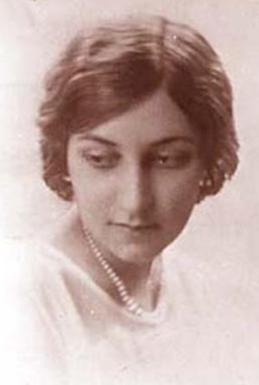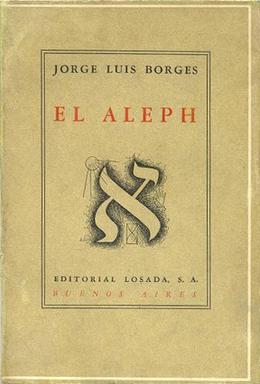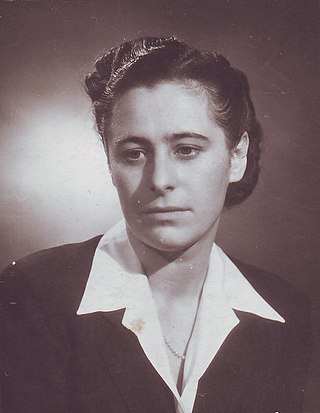
Jorge Francisco Isidoro Luis Borges Acevedo was an Argentine short-story writer, essayist, poet and translator regarded as a key figure in Spanish-language and international literature. His best-known works, Ficciones (transl. Fictions) and El Aleph, published in the 1940s, are collections of short stories exploring motifs such as dreams, labyrinths, chance, infinity, archives, mirrors, fictional writers and mythology. Borges's works have contributed to philosophical literature and the fantasy genre, and have had a major influence on the magic realist movement in 20th century Latin American literature.

Mona Lisa Overdrive is a science fiction novel by American-Canadian writer William Gibson, published in 1988. It is the final novel of the cyberpunk Sprawl trilogy, following Neuromancer and Count Zero, taking place eight years after the events of the latter. The novel was nominated for the Nebula Award for Best Novel, the Hugo Award for Best Novel, and the Locus Award for Best Science Fiction Novel in 1989.

Martín Fierro, also known as El Gaucho Martín Fierro, is a 2,316-line epic poem by the Argentine writer José Hernández. The poem was originally published in two parts, El Gaucho Martín Fierro (1872) and La Vuelta de Martín Fierro (1879). The poem supplied a historical link to the gauchos' contribution to the national development of Argentina, for the gaucho had played a major role in Argentina's independence from Spain.
"The Zahir" is a short story by the Argentine writer and poet Jorge Luis Borges. It is one of the stories in the book The Aleph and Other Stories, first published in 1949, and revised by the author in 1974. Translated into English by Dudley Fitts, it was published in Partisan Review, February 1950.

Leonor Fanny "Norah" Borges Acevedo, was an Argentine visual artist and art critic, member of the Florida group, and sister of the Argentine writer Jorge Luis Borges.

Labyrinths is a collection of short stories and essays by Argentine writer and poet Jorge Luis Borges. It was translated into English, published soon after Borges won the International Publishers' Prize with Samuel Beckett.

The Aleph and Other Stories is a book of short stories by Argentine writer Jorge Luis Borges. The title work, "The Aleph", describes a point in space that contains all other spaces at once. The work also presents the idea of infinite time. Borges writes in the original afterword, dated May 3, 1949, that most of the stories belong to the genre of fantasy, mentioning themes such as identity and immortality. Borges added four new stories to the collection in the 1952 edition, for which he provided a brief postscript to the afterword. The story "La intrusa" was first printed in the third edition of El Aleph (1966) and was later included in the collection El informe de Brodie (1970).
"The Aleph" is a short story by the Argentine writer and poet Jorge Luis Borges. First published in September 1945, it was reprinted in the short story collection, The Aleph and Other Stories, in 1949, and revised by the author in 1974.
"The House of Asterion" is a short story by Argentine writer Jorge Luis Borges. The story was first published in 1947 in the literary magazine Los Anales de Buenos Aires and republished in Borges's short story collection The Aleph in 1949. It is based on the Greek myth of Theseus and the Minotaur and is told from the perspective of Asterion, the Minotaur.
Días de odio, literally translated as Days of Hate, is a 1954 Argentine film. It is based on the short story Emma Zunz by Jorge Luis Borges. Días de odio was directed by Leopoldo Torre Nilsson and filmed in black and white. The script was adapted by Nilsson from the short story "Emma Zunz" by Jorge Luis Borges. The film was released on 3 June 1954, starring Elisa Galvé, Nicolas Freguês, Raul del Valle, Enrique de Pedro, Duilio Marzio and Virginia Romay in the main roles. The producer of the film was Armando Bó.
"Allan and the Sundered Veil" is a six-part horror comic story written in the style of a boy's periodical by Alan Moore and illustrated by Kevin O'Neill, included at the back of each issue of The League of Extraordinary Gentlemen, Volume I and collected at the back of that volume. It serves as a prequel to the comic.
"The Two Kings and the Two Labyrinths" is a short story by Argentine writer Jorge Luis Borges, first published in February 1936. It was later included in El Aleph under the title "Los dos reyes y los dos laberintos". It deals with a number of Borgesian themes: labyrinths, supposed obscure folk tales, Arabia, and Islam. The story is itself referenced in-universe by characters of Borges' "Ibn Hakkan Al-Bokhari—Dead in His Labyrinth", also found in The Aleph.
"The Writing of the God" is a short story by Argentine writer Jorge Luis Borges. It was published in Sur in February 1949, and later reprinted in the collection The Aleph.
"The Wait" is a 1950 short story by Argentine writer Jorge Luis Borges. It was published in the collection The Aleph. David Foster Wallace referred to the story as "marvelous".
"The Congress" is a 1971 short story by Argentine writer Jorge Luis Borges. The story is on a utopic universal congress and is seen by some critics as a political essay.

Estela Canto was an Argentine writer, journalist, and translator best known for her relationship with Jorge Luis Borges.

Zofia Chądzyńska or Sophie Bohdan, was a Polish writer and translator of the Iberoamerican literature. Her first book was published in French under a pseudonym of Sophie Bohdan, entitled "Comme l'ombre qui passe", Publisher: Paris : Calmann-Lévy, 1960. Later she was publishing in Polish under her original name Zofia Chądzyńska.
"Story of the Warrior and the Captive" is a short story by Argentine writer Jorge Luis Borges. It first appeared in 1949 in the short story collection El Aleph and later appeared in Labyrinths.
Jorge Guillermo Borges Haslam was an Argentine lawyer, teacher, writer, philosopher and translator. He was also an anarchist and a follower of Herbert Spencer's philosophy of philosophical anarchism. He was Jorge Luis Borges's father.
"Man on Pink Corner" is a short story by Argentine writer and poet Jorge Luis Borges. It is the first of several stories he wrote concerning duels between knife-fighters, which Borges recognized as one of his archetypal themes. "The story is one I have been retelling, with small variations, ever since. It is the tale of the motiveless, or disinterested, duel—of courage for its own sake."








